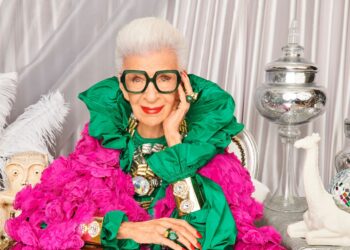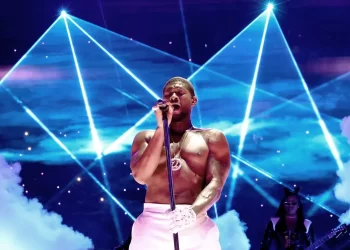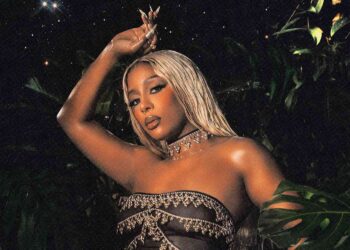
By now you may have heard about the recent scandal surrounding Mister Cee, a well-known hip-hop DJ in New York City. Mister Cee was “caught” on tape soliciting a cross-dressing male posing as a prostitute. Upon Mister Cee’s recognition that the conversation was made public, he quickly resigned from his prized DJ post. Soon after, he rescinded his resignation, and tearfully confessed his essentially homosexual desires.
The entire incident causes me to ask, “Are we preventing or promoting the emergence of other “DJ Mister Cees” in society to “come in” to self-acceptance? And who is more harmful? A hip hop homosexual on the down low or one that is out and openly vicious? And how does any of this improve issues concerning sexuality within our community?”
In short, as it stands, Mister Cee is a Black male who while attempting to discreetly fulfill his desires, was strategically ambushed and set-up by a self-appointed, backbiting homosexual. Was anybody victimized during this incident? No. DJ Mister Cee was minding his own business along with a consenting adult. Yet, there are social constructs and paradigms that transform what DJ Mister Cee likely assumed was a private matter, into prey for the consumption of ironically voracious reputation predators.
That this is a scandal at all, one created by a gay-identifying Black male, is a consequence of intra-community disdain and misdirected rage – driven by a [White gay] blueprint on how homosexuals/bisexuals should act and identify. Same-gender-loving (SGL) or bisexual Black men who do not buy into this identity paradigm and/or don an “I identify as gay” T-shirt (so to speak), can be subject to brutal treatment; especially by homosexual Black men who do take on “gay identity culture” as their own.
A now widely viewed YouTube video on Bimbo Winehouse TV provides a case-in-point. The video displays a Black male, clearly gay identified, who seems to relish in his disdain and ridicule of DJ Mister Cee. Seemingly, with gleeful satisfaction, Bimbo Winehouse sways and sings while he taunts with words that include “Shout out to all you ‘down-low’ men out there. Shout out to all you ‘down-low’ celebrities. You hiding in that closet of who you truly are. Honey! You running from who you are. You gay.”
A reasonable question posed to Bimbo Winehouse might be, “And how will your antics and ridicule resolve the so-called “down-low” issue?” Yet, problem-solving rarely appears atop of the agenda. Instead, the mentality tends to be: Either you are with us as an ally or against us as an enemy.
Bimbo Winehouse demonstrates a cut-throat viciousness and peer-insensitivity rampant in Black gay identified sub-cultures. It is driven by oppression and pain resulting from a community having yet to find its way in culturally resonant healing or historically informed ways. These days, with homosexuality being so prominently displayed, one might think that homosexuality has lost its controversy.
Yet, this is not necessarily the case within the Black, desperate-to-be-seen as “masculine” and “hard” dominated sub-cultures like Hip Hop. While the White gay community tends to set the pace for perceptions of what homosexuality is and is not, Black culture, history, experience and context has not. The now 500-year story and reality behind Black male identity anxiety around self-concept, culture, and homosexual expression – remains clandestine.
The lack of understanding and engagement of this experience and journey leads to a perpetual state of confusion and disorientation about and among SGL Black men. This institutionalized invisibility also contributes to this population’s unique and perpetual inability to manage and resolve it’s still disproportionate HIV incidence problem.
My advice to same-gender-loving (SGL), bisexual and experimenting Black men is to focus on healing and compassion for each other and organizing and building a more functional and constructive community. Concretely, there is very little space provided in America, even in Black communities, which compels Black men in particular, including DJ Mister Cee, to feel safe presenting all that they personally are to society.
My advice to society at-large, especially the Black community, is to affirm creation of breathing room for the diversity that has always existed among humanity. This must include room for the spectrum of gender expression that has always been with us, that is often contorted and abusively contained within desperately patriarchal social mind prisons.
We can do better than we have; and we must if we are ever to acquire a just and constructively free society that, among other things, discontinues the creation of DJ Mister Cee-like scandals. The real scandal is not Mister Cee’s public outing, but the overall public perception of the diversity around Black male sexuality issues. Do you ‘Cee’ what I see? I’m hoping that one day we will see more compassion, understanding and decency from all parties involved.
Cleo Manago is founder and CEO of the Black Men’s Xchange (BMX), the nation’s oldest and largest community-based movement devoted to promoting healthy self-concept and behavior among diverse males of African-descent.












